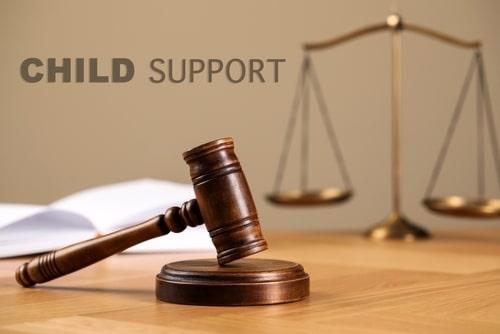Recent Blog Posts
Debunking Common Misconceptions Regarding Guardian Ad Litems
 Guardian ad litems (GALs) play a crucial role in the legal system, representing the best interests of vulnerable individuals, such as children whose parents are getting divorced. However, misconceptions surrounding their work persist. Today, we will be debunking common misunderstandings associated with GALs and shed light on their critical role in safeguarding those who cannot advocate for themselves. If you believe guardian ad litem would be beneficial to your legal situation, discuss this with your divorce attorney to try and come up with a plan to get guardian ad litem involved in your case.
Guardian ad litems (GALs) play a crucial role in the legal system, representing the best interests of vulnerable individuals, such as children whose parents are getting divorced. However, misconceptions surrounding their work persist. Today, we will be debunking common misunderstandings associated with GALs and shed light on their critical role in safeguarding those who cannot advocate for themselves. If you believe guardian ad litem would be beneficial to your legal situation, discuss this with your divorce attorney to try and come up with a plan to get guardian ad litem involved in your case.
Misconception #1 – GALs are Advocates for One Party Only
One common misconception is that GALs solely advocate for one side in a legal dispute. However, the primary responsibility of a GAL is to represent and protect the best interests of the individual they are appointed to represent. They objectively assess what is in the person's well-being, considering multiple factors like their physical and emotional needs, safety, and future prospects. GALs work independently and serve as a neutral voice in court proceedings, guiding the court toward a decision that ensures the individual's welfare.
How Dissipation of Marital Assets Can Impact a Divorce
 It is no secret that some people are better with money than others. It can create significant strain in a marital relationship if one spouse prioritizes saving and financial responsibility, while the other is more interested in spending large amounts of money for their own personal enjoyment. When spouses who do not see eye to eye on financial management get divorced, it may become a major issue during asset division if one of them has spent wastefully without the cooperation of the other spouse. When an Illinois court finds that one spouse has dissipated (wasted) marital assets, that spouse can be ordered to compensate the other for any misused marital funds. This is very common in cases where one spouse has a drug or gambling addition, or has spent a significant amount of money on an adultery partner. If you believe that your spouse has dissipated marital assets, it is important to involve an attorney. You will likely need to provide evidence showing your spouse’s misappropriation of marital funds, which an attorney may be able to help you gather.
It is no secret that some people are better with money than others. It can create significant strain in a marital relationship if one spouse prioritizes saving and financial responsibility, while the other is more interested in spending large amounts of money for their own personal enjoyment. When spouses who do not see eye to eye on financial management get divorced, it may become a major issue during asset division if one of them has spent wastefully without the cooperation of the other spouse. When an Illinois court finds that one spouse has dissipated (wasted) marital assets, that spouse can be ordered to compensate the other for any misused marital funds. This is very common in cases where one spouse has a drug or gambling addition, or has spent a significant amount of money on an adultery partner. If you believe that your spouse has dissipated marital assets, it is important to involve an attorney. You will likely need to provide evidence showing your spouse’s misappropriation of marital funds, which an attorney may be able to help you gather.
The Most Common Reasons for Divorce
 If you are considering getting divorced from your spouse, you are far from alone. Some individuals fear that their reason for wanting a divorce is strange, or silly. Knowing some of the most common reasons people get divorced may help to validate your feelings. Deciding whether to divorce is a highly personal choice. You should know that you will not likely need to explain your reasons for wanting a divorce to the judge. The only ground for divorce is having “irreconcilable differences.” The judge is not there to judge whether you have a good enough reason for getting divorced. Simply asserting that you and your spouse have irreconcilable differences is generally enough to have your divorce granted. However, if your case goes to litigation, you may be asked some questions of a personal nature. It is best to be represented by an attorney throughout the process.
If you are considering getting divorced from your spouse, you are far from alone. Some individuals fear that their reason for wanting a divorce is strange, or silly. Knowing some of the most common reasons people get divorced may help to validate your feelings. Deciding whether to divorce is a highly personal choice. You should know that you will not likely need to explain your reasons for wanting a divorce to the judge. The only ground for divorce is having “irreconcilable differences.” The judge is not there to judge whether you have a good enough reason for getting divorced. Simply asserting that you and your spouse have irreconcilable differences is generally enough to have your divorce granted. However, if your case goes to litigation, you may be asked some questions of a personal nature. It is best to be represented by an attorney throughout the process.
Top Reasons for Getting a Divorce
Some of the most common reasons spouses divorce include:
Do I Still Pay Child Support if I Got Laid Off?
 When the Illinois economy slows down, the pace of layoffs accelerates throughout the state. It can become very difficult to keep up with your child support obligations when you do not have your full income. However, child support is ordered by a court, and unless the court changes your child support obligations, you would still need to pay as obligated.
When the Illinois economy slows down, the pace of layoffs accelerates throughout the state. It can become very difficult to keep up with your child support obligations when you do not have your full income. However, child support is ordered by a court, and unless the court changes your child support obligations, you would still need to pay as obligated.
The Court May Modify Your Child Support
The court may order a reduction in the child support that you pay if you can prove that you have suffered a significant cut in your income. If you are out of work for any extended period of time, you should file a motion to reduce child support with the court. The judge may order lowered child support.
Courts often take a different view if the paying parent is fired from their job with cause. Then, judges often deny a request to modify child support.
Once you find a job again, the other parent may file a motion to modify to raise child support to reflect your new income. However, that modification would not be retroactive to cover the reduced payments.
Your Marriage is Ending Because of Adultery. What Now?
 Many Illinois divorces are triggered, at least indirectly, by adultery. The betrayed party, understandably hurt and angry, may wish to seek legal revenge against the person who interfered in their marriage. While revenge may seem tempting, it is not feasible to take legal action against someone for breaking up your marriage. However, it is important to understand how adultery may affect the divorce proceedings.
Many Illinois divorces are triggered, at least indirectly, by adultery. The betrayed party, understandably hurt and angry, may wish to seek legal revenge against the person who interfered in their marriage. While revenge may seem tempting, it is not feasible to take legal action against someone for breaking up your marriage. However, it is important to understand how adultery may affect the divorce proceedings.
How Does Illinois Law View Adultery in Divorce Cases?
In Illinois, all divorces are based on “irreconcilable differences,” as it is a no-fault divorce state. Although adultery is no longer a legally recognized ground for divorce, it may still be taken into account during divorce proceedings. If a spouse’s infidelity is causing problems in the family, divorce might be a solution to consider. Adultery could affect how marital property is divided and spousal support payments. According to Illinois law, judges must decide about alimony without considering marital misconduct. Although marital misconduct may not directly impact divorce proceedings, it can still affect other aspects, such as property division.
What is The Role of a Forensic Accountant in an Illinois Divorce Case?
 Finances play a crucial role in a divorce case. When there are complicated financial circumstances in a divorce, a forensic accountant may provide expert analysis and testimony. The primary objective of a forensic accountant is to assist in painting an accurate financial picture of the marital estate so that asset division, child custody, and other divorce issues can be determined. Forensic accountants are often used in divorce cases in which a spouse is misrepresenting his or her financial situation. A divorcing spouse may hide assets, undervalue assets, or lie about his or her income. A forensic accountant’s job is to uncover the truth and assist the divorce lawyer during the case.
Finances play a crucial role in a divorce case. When there are complicated financial circumstances in a divorce, a forensic accountant may provide expert analysis and testimony. The primary objective of a forensic accountant is to assist in painting an accurate financial picture of the marital estate so that asset division, child custody, and other divorce issues can be determined. Forensic accountants are often used in divorce cases in which a spouse is misrepresenting his or her financial situation. A divorcing spouse may hide assets, undervalue assets, or lie about his or her income. A forensic accountant’s job is to uncover the truth and assist the divorce lawyer during the case.
Tracing and Identifying Assets
In many contested divorce cases, questions are raised about a spouse’s marital and non-marital assets. A forensic accountant traces and identifies marital assets, including assets that have been hidden. A spouse may try to hide assets by transferring assets to a third party, failing to disclose offshore accounts or other difficult-to-find property, or lying about the value of assets.
What Happens During Divorce If We Owe More of the Mortgage Than What the House Is Worth?
 Property division is an essential aspect of the Illinois divorce process. For many divorcing couples, their home is the most valuable asset they own. Unfortunately, in these difficult times, many people owe more on their mortgage than their house is worth.
Property division is an essential aspect of the Illinois divorce process. For many divorcing couples, their home is the most valuable asset they own. Unfortunately, in these difficult times, many people owe more on their mortgage than their house is worth.
If you find yourself in this predicament, you may have questions about what happens to the home and the mortgage during your divorce. The answer to this question depends on many factors. Read on to learn more.
How is an Upside Down Mortgage Handled During Divorce?
Typically, there are two main ways that divorcing spouses address the equity in their home. In some cases, the couple sells the house and divides the proceeds between them. In other cases, one spouse buys out the other spouse by retaining ownership of the home and compensating the other spouse with other marital assets, such as bank account balances, retirement assets, or vehicles.
Mental Health Evaluations in Child Custody and Divorce Cases
 In a divorce or child-related legal dispute, Illinois courts always want to ensure that the children's safety and well-being are paramount. In order to ensure that a child custody arrangement is in a child's best interest, the court sometimes requires parents to undergo psychological testing or a mental health evaluation. Sometimes, a mental health evaluation is requested by one of the parents, in other cases, the court orders psychological testing.
In a divorce or child-related legal dispute, Illinois courts always want to ensure that the children's safety and well-being are paramount. In order to ensure that a child custody arrangement is in a child's best interest, the court sometimes requires parents to undergo psychological testing or a mental health evaluation. Sometimes, a mental health evaluation is requested by one of the parents, in other cases, the court orders psychological testing.
If you are getting divorced or going through a child custody case, you may have many questions and concerns about how mental health evaluations are used and what they entail. Each case is different; however, this blog will give a general outline of mental health evaluations in Illinois family law cases.
Who Has to Undergo Psychological Testing?
Psychological testing can be time-consuming, invasive, and expensive. Consequently, it is only used when necessary to ensure the well-being of a child. The court has the authority to order psychological testing if the court believes that a parent could have a psychological or mental health condition that influences the case.
Retirement Assets, Social Security, and QDROs: Your Questions, Answered
 Divorcing couples of any age may have questions and concerns about how their divorce will influence their retirement, but this is often an especially crucial issue in divorce cases involving older spouses. Understandably, people want to ensure that they will have access to the financial resources they need in their golden years.
Divorcing couples of any age may have questions and concerns about how their divorce will influence their retirement, but this is often an especially crucial issue in divorce cases involving older spouses. Understandably, people want to ensure that they will have access to the financial resources they need in their golden years.
In this blog, we will discuss answers to some of the most frequent questions about how divorce can influence retirement accounts and what you can do if you want personalized guidance regarding your situation.
Does My Spouse Get Half of My Retirement Account?
Retirement funds are treated just like any other asset during a divorce. This means that any retirement funds a spouse acquires during the marriage are included in the marital state. Funds that were acquired before the marriage or after a legal separation are considered separate property. You do not have to share separate property, but it is very likely that your spouse is entitled to a share of any retirement funds acquired during the marriage.
Considerations for a Parent with Teenage Children Getting a Divorce
 Divorce is challenging for everyone involved, but it can be especially difficult for teenage children. The teenage years are a formative time, and the turbulence of a divorce can make these critical years even more complicated than they already are. As a result, many parents with teenage children are concerned with how the divorce will affect them.
Divorce is challenging for everyone involved, but it can be especially difficult for teenage children. The teenage years are a formative time, and the turbulence of a divorce can make these critical years even more complicated than they already are. As a result, many parents with teenage children are concerned with how the divorce will affect them.
What to Keep in Mind
Here are some considerations for parents with teenage children getting a divorce, including:
-
Keep communication channels open – Keeping lines of communication open with your teenage children during the divorce process is essential. Make sure they know that they can come to you with any questions or concerns, and be honest with them about the situation.
-
Avoid bad-mouthing the other parent – Speaking poorly of your soon-to-be ex-spouse can be emotionally traumatizing for teenage children, as they may see your words as a reflection of them. This can create feelings of tremendous guilt and sadness. Avoid this at all costs.

















